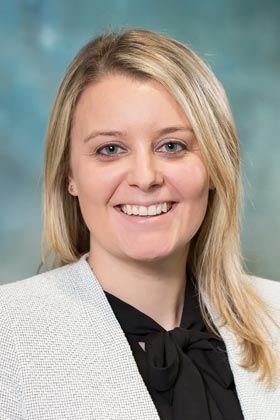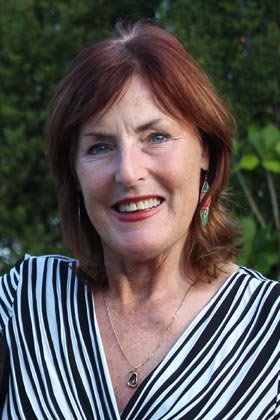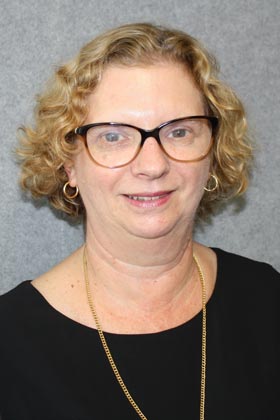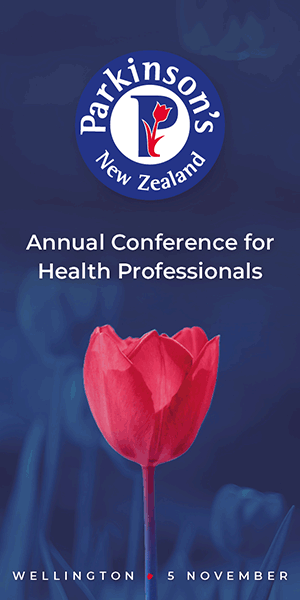The importance of speaking up for patients – and documenting it – was emphasised at the first NZNO professional forum in Christchurch last month. The forum, Every nurse is an advocate – influencing through advocacy, was a mixture of face to face and Zoom.
NZNO medico-legal lawyer Sophie Meares acknowledged how difficult it could be for nurses to voice concerns, and challenge their colleagues, such as surgeons. Yet nurses had an essential role in upholding patients’ rights, she said, and could be penalised for failing to do so. “These situations aren’t easy, but the advocacy still needs to happen.”
Nurse raised concerns
It was a nurse who repeatedly raised concerns about Whanganui gynaecologist Roman Hasil from 2005 to 2007 over his competence, cursory history-taking, painful examinations, preference for hysterectomies over lower-level interventions, drinking alcohol and lack of informed-consent processes.
Frustrated by a lack of action, she warned her clinical nurse manager in 2006 by email that he would make a “grave mistake”. Her nurse manager informed the service manager – who later said the concerns had not been documented. Hasil was later found to have a 25 per cent failure rate for his tubal ligations, and several complaints were laid by women who became pregnant or had unnecessary surgery. “The Health & Disability Commission (HDC) heavily praised the nurse for advocating right from the start and sticking to her guns.”
But if her concerns were not documented, it would have been her word against the service manager, Meares said.

Meares gave several examples of where the HDC had made adverse findings against nurses who did not object, or record objections, to decisions which had resulted in poor outcomes. In one instance, a patient complained she had been pressured during a hysterectomy to also have her ovaries removed. The HDC found the nurse had failed to advocate for her, and all staff had to go through training. “This would have been an incredibly difficult situation for a nurse to advocate in, and wouldn’t have been welcomed by the surgeon,” Meares said.
In another case, a child died after being discharged, despite a nurse’s concerns. The HDC was critical of the hospital culture, which failed to value the nursing perspective. “Any individual in the clinical team should be able to ask questions or challenge decisions at any time,” Meares said.
“My advice would be if you have concerns, raise them at the time and document at the time that you raised concerns.”
Meares said she recognised the challenges of advocacy and potential employment consequences, but NZNO was there to advocate for its nurses.
‘…you need to be the wise person in the room, the sun-drenched rock in the middle of the river.’
NZNO organiser Karyn Chalk spoke about the need to stay calm and emotionally detached. “You want the person who’s upset to be able to articulate their concerns, as much as possible. To do that – and this is the tricky part – you need to be the wise person in the room, the sun-drenched rock in the middle of the river.”
“It’s not your fight. As soon as you become emotionally invested, you become part of the problem and your rational brain packs up its bags and goes on leave,” she said. “The chances of your colleague getting an effective outcome has significantly decreased.”
‘Slow down’
To be effective, it was important to slow down and take a structured approach, check if the person really needed an advocate or just a “moan, to talk things through”. It was important to look for the underlying problems being experienced by that person, to ask “what’s really going on here?”
Solid preparation also helped.
“It’s much easier to be the angel at the sideline than the train wreck in the middle of the room,” a colleague once told her.
Nationwide health and disability advocacy service advocate Antonio Lara said sometimes advocates must find their way through the “white smoke” of people’s behaviour – “the stories behind the stories” to work out how to help, with empathy and non-judgement.
Boundaries of advocacy

It was also important to know the boundaries – advocates were not there to investigate or mediate complaints – only the HDC had investigative powers. “We don’t have the capacity to make any of those calls,” Lara said. “We are there to talk things through and find a way forward and resolve the issues.”
Nurse Patricia Sullivan shared her and others’ experiences of surgical mesh injuries. “They’ve lost marriages, income, homes. They’ve lost family members, who couldn’t take it anymore. They’ve lost bodily functions, they’ve lost their voices and they’ve lost the ability to live a life without pain – and some are so drugged up for that pain that they can’t function,” Sullivan said. “So I am a voice for those people.”
Despite her own injuries, Sullivan has become an advocate for mesh-injured women and co-founder of the Mesh Down Under group. It successfully advocated for a restorative justice process at the Ministry of Health last year as well as a review of declined mesh-related injury claims by the Accident Compensation Corporation. A national register of mesh injuries and specialist centres for mesh support, implants and removals by credentialed surgeons were also in the pipeline, she said.
Sullivan said nurses and women have a responsibility to our “dearly loved sisters” to speak up for them.
‘Once you speak, you gain courage… As nurses we are compassionate human beings and we want the best outcomes…’
“Once you speak, you gain courage,” she said. “As nurses we are compassionate human beings and we want the best outcomes. If we see something going on that is not producing the best outcomes, then we should speak up… By advocating, we are doing what the role of nurse incorporates.”
NZNO advocacy

NZNO acting associate professional services manager Kate Weston wrapped up the forum with a video clip created by Curative creative agency for NZNO, to acknowledge nurses’ response to COVID-19, followed by an an overview of NZNO’s advocacy since the beginning of the COVID-19 pandemic.
Early in the pandemic, nurses were seeing images of overseas workers in full personal protective equipment (PPE) – but were not getting it here, she said. While the science “pushed back” on how widely available PPE needed to be, there was a “growing sense of distress”, Weston said.
“There was a high concern that if they couldn’t wear a mask, they weren’t protected. And no science could dissuade them,” Weston said. “What we were dealing with is what I call the heart and the science.”
Nearly a year down the track, the value of masks and the risks of airborne transmission were more fully appreciated, she said.
In April 2020, seven nurses became infected after rest-home residents were admitted to Waitakere Hospital. NZNO was involved with the review that led to an apology by the Waitemata District Health Board, then lobbied for workplace exposure to COVID-19 to be recognised as a reportable event to WorkSafe.
NZNO also contributed to the Auditor-General’s review which found serious issues around the national supply of PPE; and a review of the residential aged-care sector’s response.
NZNO also continued to advocate for safer staffing, pay parity and infection, prevention and control processes at managed isolation/quarantine facilities. It’s about “really looking after this workforce to make sure they’re really acknowledged for the contribution they’re making”.
NZNO was also working on the vaccination rollout plans and advocating for authorised vaccinators, Weston said.
Tūwhitia te hopo mairangatia te angitū! – feel the fear and do it anyway!
Professional nursing adviser Michelle McGrath closed the forum with a whakatauki from Māori psychiatrist Hinemoa Elder’s book Aroha: “Tūwhitia te hopo mairangatia te angitū – feel the fear and do it anyway!”
Because of level-3 lockdown restrictions in Auckland, the Auckland forum, scheduled for March 2, was cancelled. Many registered for that forum participated in the Wellington forum on March 10. Because of COVID-19 uncertainty, NZNO only scheduled three forums this year.
This professional forum coverage replaces college and section news for March.




